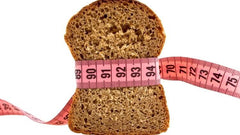
Our Guide to Dieting - How to Stick to a Diet by Changing Your Lifestyle
Fad diets and “magic” weight loss supplements abound. And while some diets and pills can cause weight loss, few (if any) promise long-term results. The problem? Fad diets force you to cut out necessary nutrients, often carbohydrates and fat, which makes it difficult for your body to develop and maintain itself properly.
The solution is simple: Don’t “diet” at all.
People have probelm to stick to a diet, so instead, create a lifestyle change that sheds your unwanted kilos for good and keeps them off (no fad diets required).
The Three Main Problems With Dieting: What You Need to Know
No matter which diet you choose, there are three main problems you’ll encounter:
- Your Body Shifts Into Starvation Mode – Most diets work through calorie restriction. However, restricting calories for a long time forces the body into a semi-starvation mode. It burns calories more slowly in this state and once you increase food intake again, you will gain weight.
- Your Body Experiences Nutritional Deficiencies – No matter what you cut out of your diet, any diet will cause nutritional deficiencies. These deficiencies cause cravings that send even the most dedicated dieters into a frenzy for other foods.
- No Diet Works Long-Term – You can’t cut out certain foods from your diet forever, nor should you. Most diets fail at one point or another and the reason is simple: virtually no diet is sustainable.
There are psychological reasons why dieting doesn’t work as well. In fact, studies conducted on rats reveal how food addictions form when unhealthy food is made temporarily unavailable (much like how dieters cut unhealthy choices out of their diets). This causes anxiety and stress in rats, much like it presumably would in humans.
Thus the answer to your weight loss and health goals isn’t a diet at all.
Rather, it’s a lifestyle change.
How to stick to a diet? – 10 Steps to a Healthier You With a Lifestyle Change

The answer to sustained, healthy weight loss and weight maintenance is a lifestyle change. This means you will no longer diet harder, but will make smarter choices in all the factors that directly impact your health and goals.
Doing so is a simple way to create a “diet” you will want to stick with for months and years to come. This stands in stark contrast to the quick fix cleanses or fad diets most chronic dieters turn to in desperation for a solution.
Here are 10 steps you can take to make a positive change and diet smarter right now:
Consume a Wide Variety of Foods
Choose foods rich in lean protein, complex carbohydrates, and good fats to feed your body and eliminate cravings. This creates a diet rich in nutrients that keeps your body healthy from a long-term perspective.
Eliminate Saturated Fats
Saturated fat from animal sources and trans fats from highly processed, fried foods can cause major health issues. Eliminate them when possible or at the very least, decrease your intake dramatically.
Choose Fruits and Vegetables

You’re supposed to get at least five servings of fruits and vegetables each day. However, the more the better, especially when it comes to consuming a variety of veggies!
Eat Smaller Meals More Frequently
By consuming small meals every 3 to 4 hours, you can minimise overeating and keep hunger at bay.
Get Moving Every Day
Exercise is the downfall of many diets. And while it’s true that diet has more to do with weight loss than exercise, moving even for just 10 to 15 minutes a day will increase weight loss and keep your body healthy.
Stop Consuming Empty Calories
Calorie-laden drinks and processed snacks will leave you feeling hungry while increasing your calorie intake. Try consuming more water and snacking on real foods like fruits and vegetables instead.
Consume More Nutrient Dense Foods at Meals
While every meal should contain a healthy balance of nutrients, it’s vital to consume more green vegetables and low-calorie vegetables along with lean protein and complex carbohydrates. These vegetables are filling and will keep your eating on track by diminishing hunger.
Keep Portion Sizes in Control
Portion sizes in western countries, particularly the United States, are increasing. Monitor your own portion sizes by cooking your own meals and measuring portions when appropriate. You can even use smaller plates and bowls to prevent overindulging.
Write Down What You Eat

Many dieters don’t record what they eat, leaving them unaware how much they actually are (or sometimes aren’t) consuming in a day. Undereating and overeating are detrimental to your weight loss and a healthy lifestyle. By keeping a food journal , you can ensure you’re striking a balance that works for your body.
Eliminate the Emotion of Eating
Many chronic dieters use food as a reward or punishment, creating a negative association with food, dieting, and their bodies. You should eliminate the common emotions many tie to eating to ensure you stay on track with your new healthy lifestyle, no matter what else is going on in your life.
Smarter Dieting Means Eliminating Dieting Once and for All
What is the difference between a diet and a lifestyle change? Dieting creates a negative cycle in which people gain and lose weight regularly.
By eliminating diets – both fad and otherwise – for good, you can create a sustainable lifecycle you enjoy with the weight loss results you’ve always wanted.
Many successful lifestyle changes occur with the support of a supplement.
Supplements such as PhenQ make it simple to burn stored fat , suppress appetite, block fat prodution, and improve your mood and energy. When combined with a healthy lifestyle, you can make the change you’ve sought after without a fad diet or “miracle pill” in sight.




